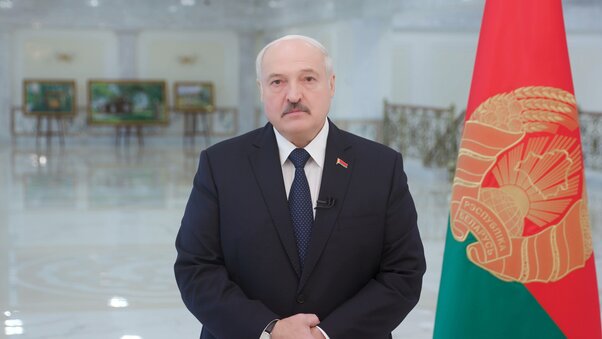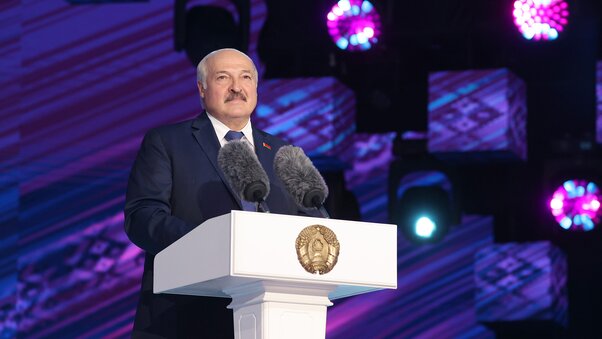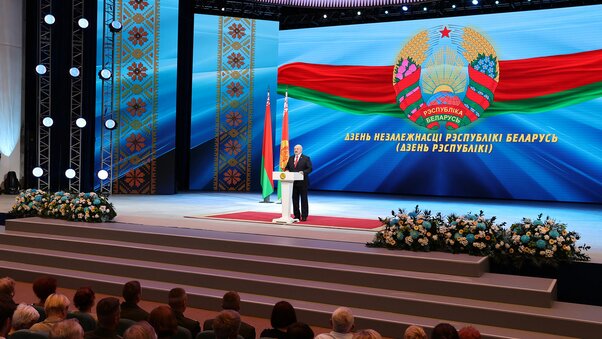Patriotic forum Symbol of Unity
- 12
- 23:16
The Belarusian people evolved into a single nation through unthinkable trials. Belarus President Aleksandr Lukashenko made the statement during the patriotic forum Symbol of Unity held in Minsk Arena on 17 September to mark People’s Unity Day.
The entire history of Belarus’ sometimes difficult and dramatic road towards gaining and preserving its statehood has more than once confirmed the ancient wisdom of strength in unity, Aleksandr Lukashenko stressed.
“We, Belarusians, know what losing half of the native land to accommodate someone else’s national interests, someone else’s exorbitant geopolitical ambitions means. We know what losing ties to your friends and family members for long 20 years means,” the President stated. In his words, during those decades over 4 million people, who lived in the territory occupied by Poland, were deprived of the right to speak the native language, go to national schools, develop their original culture, and simply call themselves Belarusians.
Aleksandr Lukashenko reminded: “It comes as no surprise that residents of Western Belarus welcomed the Red Army as a liberator on 17 September 1939. With tears in their eyes and with flowers in their hands. The archive photos that are carefully preserved in old family albums remember that meeting.”
“Yes, today we don’t have the strength to silence nationalists of various kinds, descendants of the collaborators that liken this event to Nazi Germany’s assault on Poland. But we can and should pull no punches in order to at last respond with facts, which we have started doing,” Aleksandr Lukashenko stressed. He reminded that Poland suffered a crushing defeat in the war with Germany by mid-September 1939, the Polish army was destroyed and the government fled to the UK.
In his words, back then the Belarusian nation once again regained the right to live and grow within borders of one republic. Over a short period of time people in western regions were granted the right to free healthcare, nearly 6,000 schools started working, national universities and theaters were opened. New factories and plants were built. Belarusian newspapers and magazines became available in all the oblast capitals and district capitals. “Belarus’ reunification in 1939 gave a powerful impulse to the development of economy, science, and culture. But most importantly Belarusians became united. They stood together in the fight against those in favor of recreating the ‘great’ Poland and in the fight against the Nazi occupation,” the President noted.
Aleksandr Lukashenko went on saying: “Residents of Western and Eastern Belarus died without a second thought in the name of their Fatherland on battlefields, fighting as partisan units and as the underground resistance movement. During that most dreadful and cruelest war in the history of mankind the people’s unity of Belarusians, Russians, Ukrainians, Poles, Jews, and other small ethnicities, who lived in the republic, grew stronger and was tempered. The Belarusian people evolved into a single nation through unthinkable trials.”


